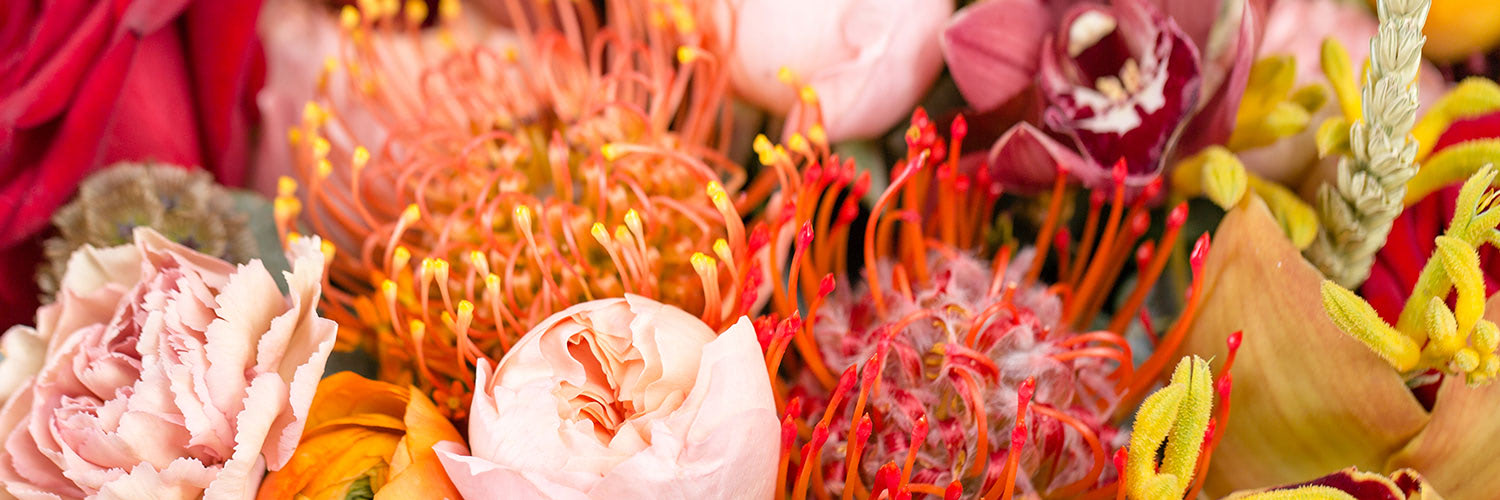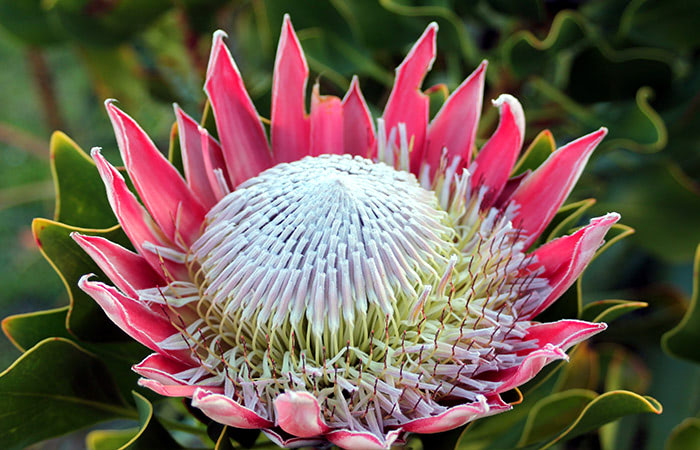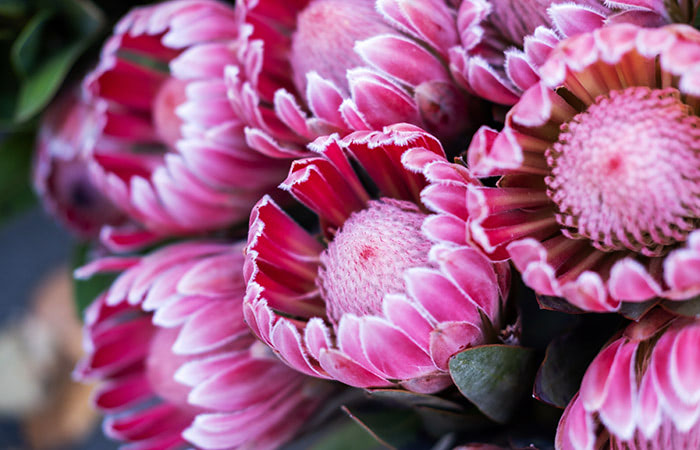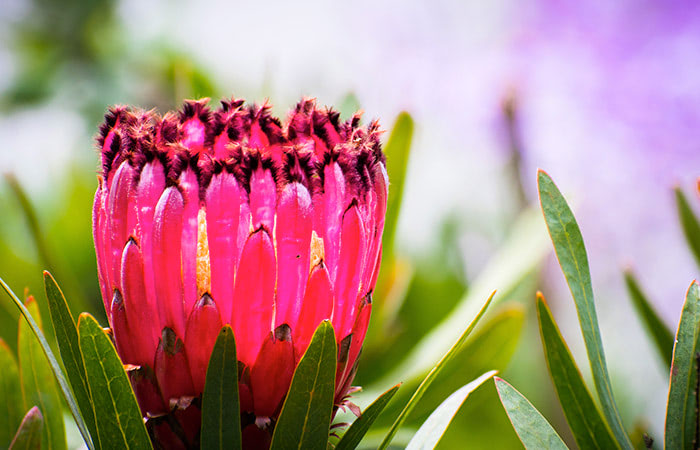

About the Protea
From the Proteaceae family, Protea is a genus of around 50 species of flowering shrubs and trees native to South Africa and Australia. They are also called "sugar bushes" due to their production of copious amounts of nectar. Proteas grow in a large variety of shapes and sizes. The flowers typically come in shades of pink, red, orange, white, and yellow.
Characteristics of Protea
Proteas grow as both shrubs and tall trees, depending on where they live. Their flowers are tubular shaped with large outer bracts (a colorful modified leaf) that spiral around the stem. Usually stiff and leathery, the bracts can be oval, rounded, paddle-shaped, or pointed. Together, they encompass a cone-shaped inner mass of long tubular florets. Proteas are easy to spot due to their many vibrant colors of reds, pinks, yellows, cream, and orange.
Fun Facts About the Protea
- Proteas date back 300 million years, making them one of the oldest flowers on the planet.
- The King Protea is pollinated by insects, birds, bats, and small mammals, making it essential in many ecosystems.
- In the 1800s, nectar from the Protea was used medicinally as a cough syrup.
- The King Protea is South Africa's national flower.
- Proteas were around and blooming the same time dinosaurs roamed the planet.
- The outer ring of petals on the King Protea resembles a crown, which befits its name.










Protea Occasions
Shop gorgeous flower arrangements featuring Proteas with Currans Flowers. The Protea's distinct shape adds an exotic touch to wedding bouquets and floral arrangements. As a cut flower, Proteas have an exceptionally long vase life and are absolutely striking when grouped with other varieties. A floral arrangement with Protea flowers makes a wonderfully unique and glorious gift for any occasion.



